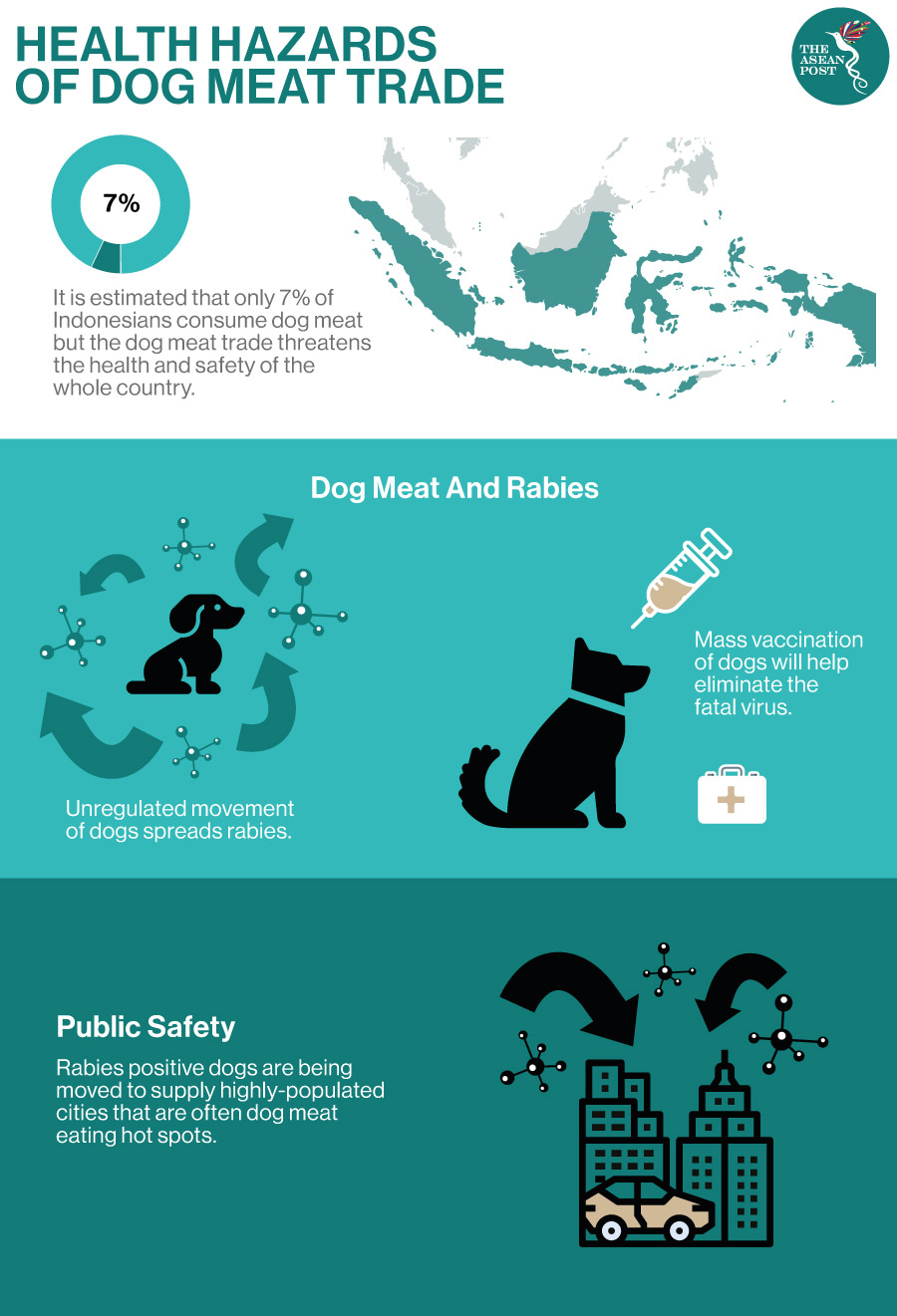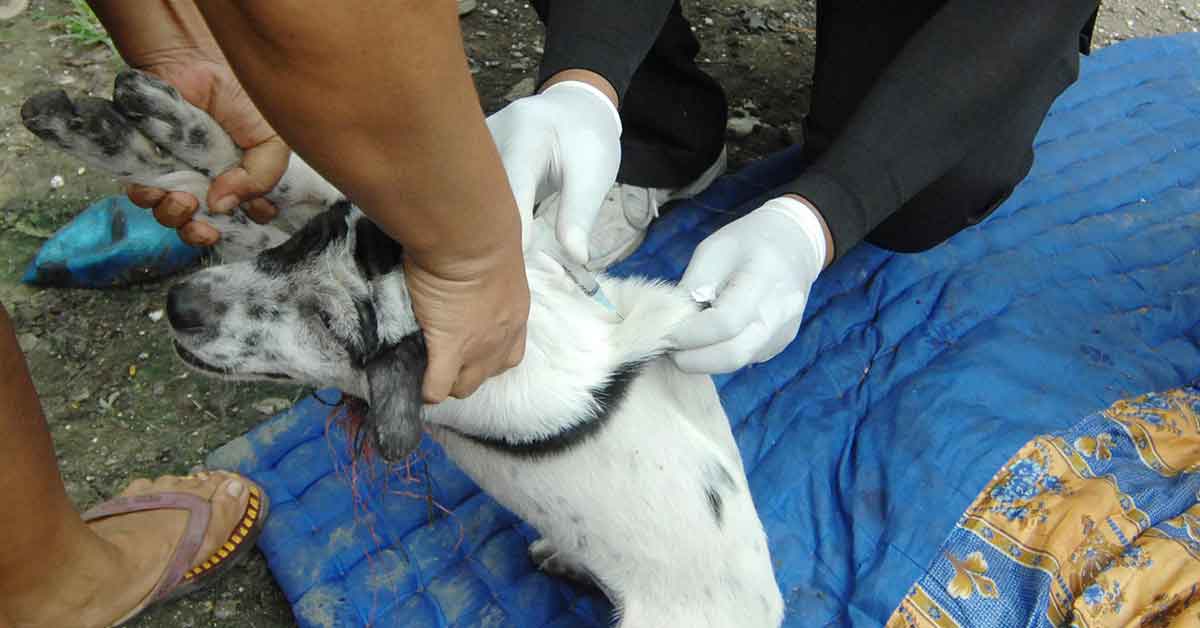A few months ago, investigators from Dog Meat Free Indonesia (DMFI) – a group committed to ending dog meat trade in the archipelagic nation, revealed heart-breaking footage exposing the extreme cruelty suffered by an estimated 13,000 dogs every month in the Indonesian city of Solo. The dogs being shown on camera were heading to the slaughterhouse for their meat.
The investigators found that dogs were being slaughtered in unhygienic conditions and were being killed in front of other dogs. According to activists, the act served to unnecessarily increase the animals’ stress and suffering before the moment of inevitable death.
Animal welfare groups have also claimed that on the Indonesian island of Sulawesi, thousands of animals are still blow-torched alive to remove their hair and bludgeoned to death at markets in front of onlookers, including children.
"By very conservative estimates, we think about one million dogs are eaten every year in Indonesia. If you look at hotspots like the city of Solo where 160,000 dogs are eaten every year, you start to realise the scale of the problem. And we know the dogs don't come from Solo, but other parts of the country," said Lola Webber, spokeswoman for the DMFI to the media.
The group also shared the footage with Ganjar Pranowo, governor of Central Java province, in hopes that it would encourage him to ban the trade of dog meat. The footage worked as Ganjar ordered officials in Solo to end the cruel practice. The governor also pointed to a law from 2012 that he said “clearly prohibits” the consumption of dog meat, as canines were not recognised as a legitimate food source.

Diseases
While the shocking DMFI footage displays just how terrible the dog meat trade can be for dogs, it isn’t just dogs which are paying for this heinous practice.
According to Kelly O’Meara from Humane Society International, the dog meat trade is one of the easiest ways to spread rabies.
From January 2019 to February 2019 alone, it was reported by local media that there were 628 rabies infections in Indonesia, with at least 12 cases that turned fatal.
“It’s a no-brainer, you have thousands of dogs of unknown disease and vaccination status being transported all over the island, including from West Central Java where rabies is still endemic. Central Java hasn’t had a case of rabies for nearly 25 years, so if it wants to retain its rabies-free status, there is no question but that it needs to shut down the dog meat trade,” she said in a statement, adding that the latest DMFI investigation has been a “wake-up call” for Central Java’s lawmakers because it shows how a trade “fuelled by crime” and supported by only a tiny percentage of people, is putting the entire population at risk.
In fact, the DMFI revealed that only an estimated seven percent of Indonesia’s population of 270 million people in 2019 partook in dog meat. The seven percent is a very small amount when considering the millions of Indonesians who are at risk.
COVID-19 And Animals
The current coronavirus crisis is believed to have been passed on from animals to humans – prime suspects include bats and pangolins, both considered delicacies in China where the virus first appeared. The Veterinary Services of the Hong Kong Administrative Region of the People’s Republic of China reported to the World Organisation for Animal Health or OIE (formerly the Office International des Epizooties) evidence that two dogs had been infected with the COVID-19 virus following close exposure to owners who were sick with the disease.
“We do not know the exact source of the current outbreak of coronavirus disease 2019 (COVID-19), but we know that it originally came from an animal source,” stated the Centers for Disease Control and Prevention (CDC) in the United States (US).
This revelation has led to many pet owners abandoning their animals for fear of them spreading the virus.
The coronavirus outbreak has opened conversations about the danger of consuming the meat of exotic animals and the illegal wildlife trade. According to US-based researchers, domesticated animals, primates, bats and rats carried the most zoonotic viruses – around 75 percent. They also concluded that the risk of spill-over from animal to human populations was highest when a species is threatened by over-consumption and habitat loss.
“Zero Tolerance”
Early last year, the DMFI celebrated a major breakthrough when Juliatmono, the regent of Karanganyar in Central Java, pledged his regency’s commitment to go dog meat-free with a “zero tolerance” response to those who continue to trade in and consume dogs. It is expected that the Karanganyar regulation – subsequently passed – will save an estimated 2,000 dogs every month and protect communities from the threat of rabies.
Karin Franken from Jakarta Animal Aid Network, said the group is optimistic that the governor of Central Java will take strong and urgent actions to ensure prohibition rules are passed to end the trade in, slaughtering and consumption of dogs.
“We know that only a minority of Indonesians consume dog meat, yet the trade threatens the health and safety of the entire nation, not to mention the immeasurable and unimaginable suffering of tens of thousands of dogs throughout Indonesia each month. It is a cruel and dangerous trade that must stop, and the DMFI stands ready to help provide practical and on-the-ground support to secure the dual aims of eliminating both, the dog and cat meat trades and rabies,” she said in a statement.
Related articles:
